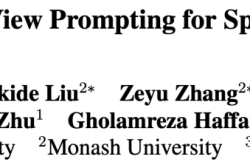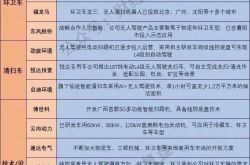4 trillion yuan! The Ministry of Housing and Urban-Rural Development speaks out
![]() 10/17 2024
10/17 2024
![]() 586
586
Text/Leju Finance Wu Wenting
"The credit scale of 'white list' projects will be increased to 4 trillion yuan before the end of the year. All qualified projects should be included in the 'white list' and done as much as possible."
On October 17, the State Council Information Office held a press conference, where Ni Hong, Minister of Housing and Urban-Rural Development, made such a statement at the conference.
When introducing the situation related to real estate, Ni Hong pointed out that the Ministry of Housing and Urban-Rural Development, together with the Ministry of Finance, the Ministry of Natural Resources, the People's Bank of China, and the China Banking and Insurance Regulatory Commission, guided local governments to take prompt action, focused on implementing existing policies, and introduced new policies to form a "combination punch" to promote market stabilization.
How to deliver this "combination punch"? In summary, it consists of four cancellations, four reductions, and two increases.
The so-called four cancellations refer to fully empowering urban governments with regulatory autonomy. Urban governments should adjust or cancel various restrictive measures on home purchases based on local conditions. This mainly includes canceling purchase quotas, sales restrictions, price limits, and the distinction between ordinary and non-ordinary residential standards.
The four reductions include reducing the interest rate on housing provident fund loans by 0.25 percentage points; reducing the down payment ratio for housing loans, unifying the minimum down payment ratio for first and second homes to 15%; reducing interest rates on existing loans; and reducing tax burdens for "selling old and buying new" home exchanges. By implementing these policies, residents' housing costs will be reduced, repayment pressure will be alleviated, and support will be provided for residents' rigid and improved housing needs.
Regarding the two increases, first, an additional 1 million units of urban village renovation and old and dilapidated housing renovation will be implemented through monetary resettlement. Urban villages have many hidden safety hazards and poor living environments, and there is an urgent need for renovation among residents. According to surveys, there are 1.7 million units waiting to be renovated in just 35 major cities nationwide, and other cities also have renovation needs. There are still 500,000 dilapidated houses in need of renovation in cities nationwide. This time, for the 1 million units with relatively mature conditions, the renovation work will be accelerated by increasing policy support.
Second, the credit scale of "white list" projects will be increased to 4 trillion yuan by the end of the year. The urban real estate financing coordination mechanism will strive to include all qualified real estate projects on the "white list" and meet reasonable financing needs as much as possible.
According to Ni Hong, the current battle to "ensure home delivery" is progressing vigorously, with 2.46 million units already delivered, achieving significant results. This battle has provided reassurance to home buyers and significantly altered market expectations.
In fact, since late September, favorable policies for the real estate market have continued to emerge.
At the Political Bureau meeting of the CPC Central Committee held on September 26, it was proposed for the first time to stabilize the real estate market and proposed specific measures such as "strictly controlling increments, optimizing stocks, and improving quality," "responding to public concerns, adjusting purchase quotas policies, and reducing mortgage interest rates," sending a strong signal to promote the stable and healthy development of the real estate market. Immediately afterward, the four major first-tier cities quickly optimized their real estate regulation policies and implemented them before the National Day holiday.
At this meeting, the Ministry of Housing and Urban-Rural Development also mentioned that since the end of September, there has been a noticeable increase in home viewings, visits, and signings for new homes, while second-hand home transactions have continued to rise, indicating positive changes in the market. Media reports indicate that real estate policies in many regions have intensified support, and the first-tier city housing market has warmed up across the board.
"With the combined effect of a series of policies, China's real estate market has begun to bottom out after three years of continuous adjustment, and relevant data for October will undoubtedly be positive and optimistic," Ni Hong said.
In addition, Tao Ling, Vice Governor of the People's Bank of China, introduced that it is expected that most of the existing housing loans will be adjusted in batches by October 25, meaning that everyone can check the adjustment results through the designated channels of the lending bank on October 26. Some small and medium-sized banks may make adjustments slightly later, but all adjustments will be completed by October 31. The interest rate on existing housing loans will decrease by an average of approximately 0.5 percentage points, which will save interest expenses of approximately 150 billion yuan in total, benefiting 50 million households and 150 million residents.







